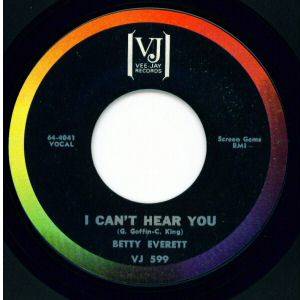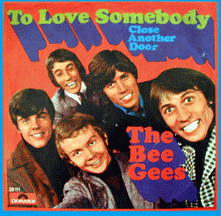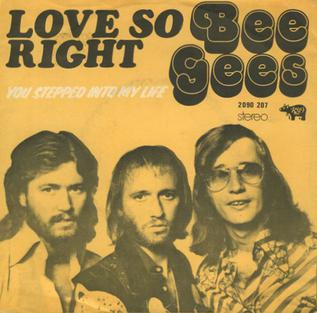Related Research Articles
Soft rock is a form of rock music that originated in the late 1960s in Southern California and the United Kingdom which smoothed over the edges of singer-songwriter and pop rock, relying on simple, melodic songs with big, lush productions. Soft rock was prevalent on the radio throughout the 1970s and eventually metamorphosed into a form of the synthesized music of adult contemporary in the 1980s.

"Ain't Nothing Like the Real Thing" is a 1968 single released by American R&B/soul duo Marvin Gaye and Tammi Terrell, on the Tamla label in 1968. The B-side of the single is "Little Ole Boy, Little Ole Girl" from the duo's United LP. The first release off the duo's second album: You're All I Need, the song—written and produced by regular Gaye/Terrell collaborators Ashford & Simpson—became a hit within weeks of release eventually peaking at number eight on the US Billboard Hot 100 and number one on the Hot Soul Singles chart, the first of the duo's two number-one R&B hits. In the UK "Ain't Nothing Like the Real Thing" reached number 34.

"Jive Talkin'" is a song by the Bee Gees, released as a single in May 1975 by RSO Records. This was the lead single from the album Main Course and hit number one on the Billboard Hot 100; it also reached the top-five on the UK Singles Chart in the middle of 1975. Largely recognised as the group's comeback song, it was their first US top-10 hit since "How Can You Mend a Broken Heart" (1971).

"You Don't Know Me" is a song written by Eddy Arnold and Cindy Walker in 1955. "You Don't Know Me" was first recorded by Arnold that year and released as a single on April 21, 1956, on RCA Victor. The best-selling version of the song is by Ray Charles, who took it to number 2 on the Billboard Hot 100 chart in 1962, after releasing the song on his number 1 album Modern Sounds in Country and Western Music. The first version of the song to make the Billboard charts was by Jerry Vale in 1956, peaking at number 14 on the pop chart. Arnold's version charted two months later, released as an RCA Victor single, 47–6502, backed with "The Rockin' Mockin' Bird", which reached number 10 on the Billboard country chart. Cash Box magazine, which combined all best-selling versions at one position, included a version by Carmen McRae that never appeared in the Billboard Top 100 Sides listing.

"Silly Love Songs" is a song by the British–American rock band Wings that was written by Paul and Linda McCartney. The song first appeared in March 1976 on the album Wings at the Speed of Sound, then it was released as a single backed with "Cook of the House" on 1 April in the US, and 30 April in the UK. The song, which features disco overtones, was written in response to music critics accusing McCartney of predominantly writing "silly love songs" and "sentimental slush"; however, McCartney has since clarified that the song was actually directed to John Lennon who accused him of writing such songs.

"Alone" is a song by musical group the Bee Gees. The ballad, written by Barry, Robin, and Maurice Gibb, is the opening track on their 21st studio album, Still Waters (1997), and was the first single released from the album on 17 February 1997. In the United Kingdom, the song was backed with two B-sides: "Closer Than Close" and "Rings Around the Moon", while in the United States, a live version of "Stayin' Alive" was included on the single releases.

"How Deep Is Your Love" is a pop ballad written and recorded by the Bee Gees in 1977 and released as a single in September of that year. It was ultimately used as part of the soundtrack to the film Saturday Night Fever. It was a number-three hit in the United Kingdom and Australia. In the United States, it topped the Billboard Hot 100 on 25 December 1977 and stayed in the Top 10 for 17 weeks. It spent six weeks atop the US adult contemporary chart. It is listed at No. 27 on Billboard's All Time Top 100. Alongside "Stayin' Alive" and "Night Fever", it is one of the group's three tracks on the list. The song was covered by Take That for their 1996 Greatest Hits album, reaching No. 1 on the UK Singles Chart for three weeks.

"I Can't Hear You No More" is a composition written by Gerry Goffin and Carole King. It was originally recorded as "I Can't Hear You" in 1964 by Betty Everett. The most successful version was the 1976 top 40 single by Helen Reddy.
"If I Can't Have You" is a disco song written by the Bee Gees in 1977. The song initially appeared on the Saturday Night Fever soundtrack in a version by Yvonne Elliman, released in November 1977. The Bee Gees' own version appeared a month later as the B-side of "Stayin' Alive".

"Can't Get Used to Losing You" is a song written by Jerome "Doc" Pomus and Mort Shuman, first made popular by Andy Williams in a 1963 record release, which was a number-two hit in both the US and the UK. Twenty years later, British band the Beat took a reggae re-arrangement to number three in the UK.

"When I Need You" is a popular song written by Albert Hammond and Carole Bayer Sager. Its first appearance was as the title track of Hammond's 1976 album When I Need You. Leo Sayer's version, produced by Richard Perry, was a massive hit worldwide, reaching number 1 on the UK Singles Chart for three weeks in February 1977 after three of his earlier singles had stalled at number 2. It also reached number 1 on both the Billboard Hot 100 for a single week in May 1977; and the Hot Adult Contemporary Tracks. Billboard ranked it as the No. 24 song of 1977. Sayer performed it on the second show of the third season of The Muppet Show.

"You Light Up My Life" is a ballad written by Joseph Brooks, and originally recorded by Kasey Cisyk for the soundtrack album to the 1977 film of the same title. The song was lip synced in the film by its lead actress, Didi Conn. The best-known cover version of the song is a cover by Debby Boone, the daughter of singer Pat Boone. It held the No. 1 position on the Billboard Hot 100 chart for ten consecutive weeks in 1977 and topped Record World magazine's Top 100 Singles Chart for a record 13 weeks.

"To Love Somebody" is a song written by Barry and Robin Gibb. Produced by Robert Stigwood, it was the second single released by the Bee Gees from their international debut album, Bee Gees 1st, in 1967. The single reached No. 17 in the United States and No. 41 in the United Kingdom. The song's B-side was "Close Another Door". The single was reissued in 1980 on RSO Records with "How Can You Mend a Broken Heart" as its flipside. The song ranked at number 94 on NME magazine's "100 Best Tracks of the Sixties". It was a minor hit in the UK and France. It reached the top 20 in the US. It reached the top 10 in Canada.

"You Make Me Feel Like Dancing" is a song credited to British singer Leo Sayer, taken from his 1976 album Endless Flight.
"I Can't Stop Loving You (Though I Try)" is a song written by singer-songwriter William Nicholls and first recorded by his short-lived project, White Horse – a collaboration between himself, Kenny Altman, and Jon Lind – and featured on the group's 1977 self-titled album.

"Love So Right" is an R&B ballad recorded by the Bee Gees. It was the second single released on the album Children of the World.
Arthur Leo "Doodle" Owens was an American country music songwriter and singer. He had a long songwriting partnership with Dallas Frazier, with whom he wrote "All I Have to Offer You " (1969), "(I'm So) Afraid of Losing You Again" (1969), "I Can't Believe That You've Stopped Loving Me" (1970) and "Then Who Am I" (1974), all number-one country hits for Charley Pride. In the 1980s, Owens wrote many songs with fellow songwriter Dennis Knutson for George Jones and other artists.
"This Night Won't Last Forever" is a song written by Bill LaBounty and Roy Freeland, and originally recorded by LaBounty in 1978, whose version of the song was a minor Adult Contemporary and pop hit, reaching number 65 on the Billboard Hot 100.

"Sweet Music Man" is a song written and recorded by American musician Kenny Rogers. It appears on his 1977 album Daytime Friends, from which it was released as the final single.
Jerry Parker McGee is a Nashville-based singer-songwriter, originally from Meridian, Mississippi.
References
- ↑ "New on the Charts". Billboard. Vol. 89, no. 4. Nielsen Business Media. January 29, 1977. p. 40. Retrieved May 14, 2024– via Google Books.
- ↑ "Parker McGee - I Just Can't Say No to You Chart History". Billboard. Archived from the original on January 25, 2019.
- ↑ "Parker McGee - I Just Can't Say No to You Adult Contemporary Chart History". Billboard. Archived from the original on January 25, 2019.
- ↑ "Moe Bandy I Just Can't Say No To You Chart History". Billboard.